Maximum pleasure or minimum suffering? The origins of hedonism.
Today, one can often hear speeches in defense of focusing on pleasure, so I decided to delve into the nuances of hedonistic discourse in a set of articles. First, we will turn to the origins. We will learn what the ancient Greeks understood by hedonism, the revolutionary nature of Epicurus' approach, and what alternative the proponents of eudaimonism offered.
June 23, 2024
Hedonism is primarily a position that requires argumentation and defense. There is nothing self-evident about reducing everything to pleasure—at least, if not for the body, then for the mind. This idea is even more problematic in ethics: the existence of pleasure does not imply that humans should strive for it.
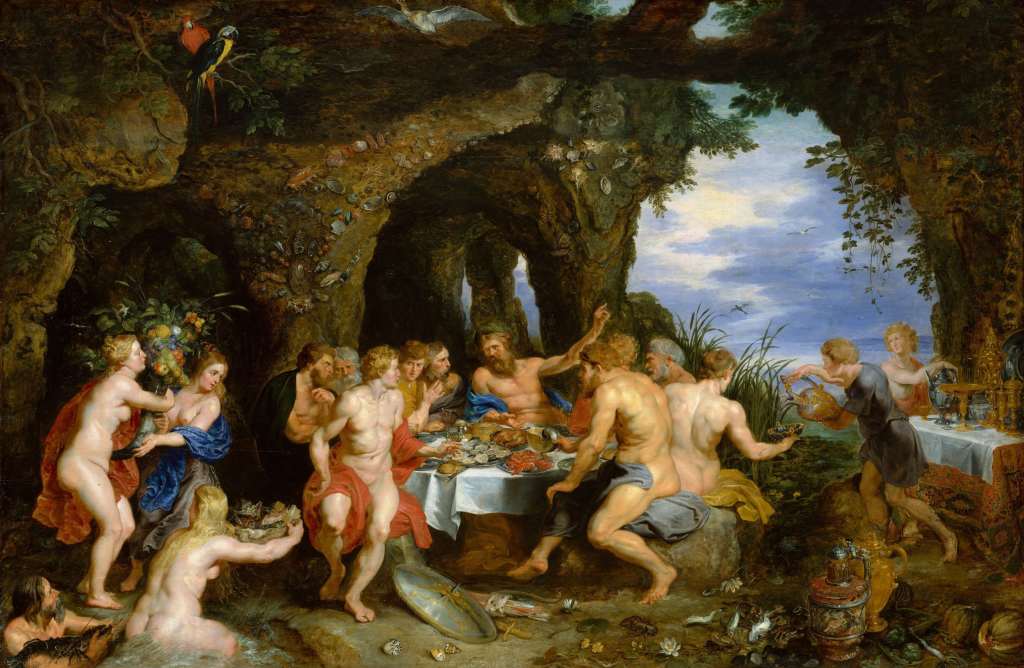
Unlike some modern hedonists, the ancient Greeks understood this well. That's why hedonism became not just a variant of a worldview but a full-fledged ethical concept with its history and, importantly, the school of thought formed around it, which we call the discourse of pleasures. Today, we will turn to the origins and examine the three philosophical concepts where it all began.
The Hedonism of Aristippus: Origins
Hedonism begins with Aristippus, a contemporary of Socrates. According to eyewitness accounts, he was not the most pleasant character: an opportunist and philistine who first realized that the love of wisdom is the love of the lack of wisdom in the one who pays you. He can be briefly described as an anti-Diogenes, a sort of prototype of a shirking docent who does not teach but diligently saves up for the joys of life, which he is more likely to share with you than anything related to the subject he is supposed to teach.
Let's not beat around the bush. Aristippus built his hedonism on the following principles:
Life should be lived for pleasures, as this is the good that philosophers seek because nothing else in human nature is suitable for this role.
Pleasures are only physical, as this avoids multiplying entities and searching for good elsewhere.
There are no high and low pleasures, just some are more enjoyable/accessible than others.
One should be content with what one has, or else one might get in trouble.
Aristippus' position is elegant in that he does not face the problem of knowing the good. It also most closely resembles a sort of archetypal hedonism, whose image, however, comes not from philosophy but from culture—primarily comedy. In it, the hedonist has appeared and existed for 2,000 years as the type of a frivolous bon vivant, fiercely enjoying and celebrating his physicality.
A successful example is the figure of Heracles, who, in Aristophanes and partially Euripides, is depicted as a cheerful and satisfied strongman who loves to party and eat heartily. In contrast, the sophist Prodicus, in his allegory "Heracles at the Crossroads," presents this hero as a young man faced with a difficult choice between accessible pleasures and the thorny path of laborious and dangerous feats (which he ultimately prefers, receiving immortality as a reward).
Because Aristippus honestly limited his hedonism to physicality, he appeals to things whose hedonistic nature seems obvious and can be attested to. Potentially, it can even be measured: this aspect will resonate in the history of discourse when the founding fathers of utilitarianism take up the matter.
Let's note that much depends on how the hedonist defines pleasure. The ancient hedonist is not a metaphysician; he is a physiologist. Thus, essentially, for him, there is only one process—the inner movement of the soul. However, if it happens abruptly, a person experiences it as pain; if smoothly, as pleasure. Hence, there arises a particular type of thinking that strives to precisely define, calculate, and balance the soul's economy.
Any movement towards higher and spiritual pleasures means a loss and blurring of distinct and measurable characteristics. Verifying the pleasure from knowledge is more difficult than from wine or sex. Not to mention that to claim that knowledge brings pleasure, one must broaden this concept, remove several restrictions, and deprive it of precision, as it will inevitably turn out that not every form of knowledge brings pleasure, or not always, or not everyone can feel it.
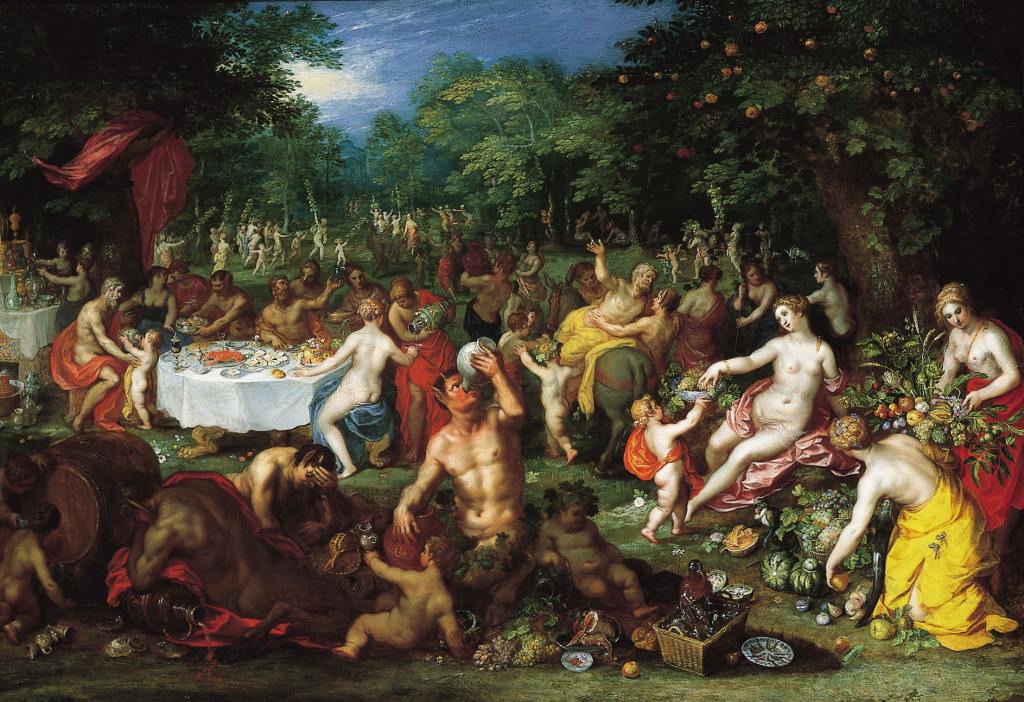
To be fair, there is some truth in the comparability of the pleasures of one person who enjoys knowledge and another who enjoys wine. But such a view of the problem leads us to lengthy discussions about why some people can derive pleasure from certain things while others cannot. Introducing non-physical pleasures can be useful, but it brings with it a number of specific situations, nuances, and examples. For instance, it may lead to the conclusion that literally anything can be a pleasure.
There is undoubtedly some truth in the strange nature of humans, who are highly variable in their individuality. However, this conclusion often leads to a simple moral lesson that displeasure is a prejudice in the mind, and the world around is full of joy, pleasure, and happiness.
As a true ancient Greek, Aristippus not only understood but also practiced deriving pleasure from alcohol, courtesans, and wealth. The situation is slightly overshadowed by the fact that Aristippus was not a cheerful and free-spirited rogue but a court sage, at such a level that the tyrant could literally dismiss him. Consequently, in his version of hedonism, there is a limitation not only to the physicality of pleasures but also to conformity. He believes that pleasures should not be actively pursued but rather skillfully extracted from the existing state of affairs.
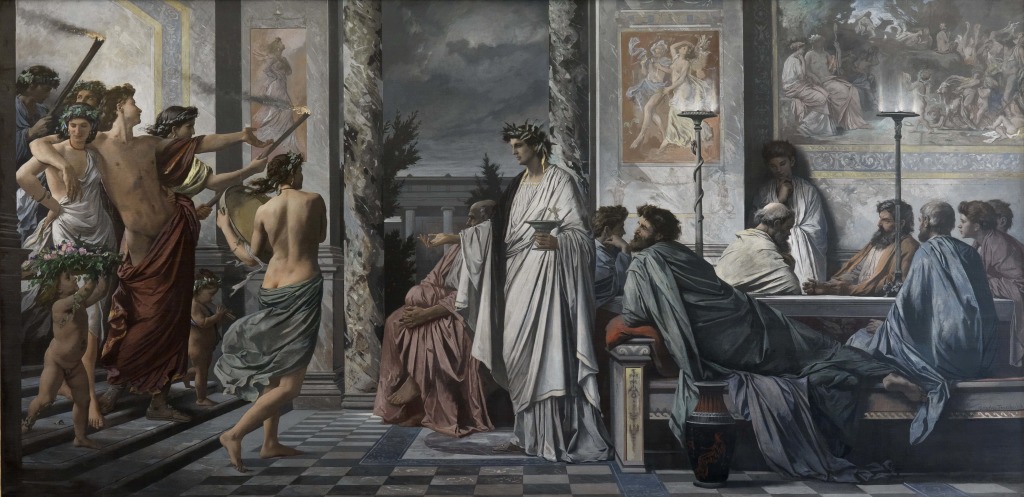
The school of Cyrenaics, founded by Aristippus, immediately began to do what almost every representative of the discourse of pleasures would later do—expand the initial position, clarify, and redefine concepts. The successors of Aristippus already included spiritual pleasures in the theory and attempted to introduce a classification.
An interesting case is that of Hegesias "The Death Teacher" of Cyrene. A proto-nihilist, after contemplating Aristippus's ideas of hedonism, he concluded that one should live either indifferently or not at all. Hegesias likely became the author of the first "death groups," since, in his view, pleasure is illusory, and more suffering will result from achieving it. He did not hesitate to share this with honest lovers of wisdom, even offering advice on what to do about it. It is easy to guess that Hegesias also became one of the first victims of censorship, whose works were banned by the methods relevant at the time.
In summary, the founder of hedonism, for the most part, drew from life and simply expressed how he lived in a prescriptive form. Despite the fact that pleasures, according to Aristippus, are something simple and physical, it is not he who achieves them, but they seem to come to him by themselves. In the case of Aristippus, we know that he was dependent on the funding from the tyrant, so a certain kind of psychology is reflected in his views.
Aristippus' hedonism is well-suited for a person content with life and not overly ambitious. In modern times, such views may be held by individuals who have found their calling and do not seek vertical career growth because their current position best satisfies them in terms of the effort-to-earnings ratio. Aristippus' hedonism can also be called conformist hedonism.
A canonical example of such a hedonist from popular culture could be Homer Simpson. He prefers bodily pleasures like food. Judging by some scenes, it can be said that food's value to Homer is indeed at the level of a good. He is entirely satisfied with the level of enjoyment he has and does not demand much more.
In summary, Aristippus' hedonism can be expressed as follows: a person desires bodily pleasures, which are identical to the good, and strives for them whenever possible, trying not to risk what they have for the illusory possibility of increasing it.
Epicureans: Hedonism Far from Hedonism
The next significant contribution to the hedonistic discourse came from the views of Epicurus of Samos and his followers. This resulted in a notable example of expanded hedonism. With some advantages and a downside, which can be summarized by the question: "Is this even hedonism?"
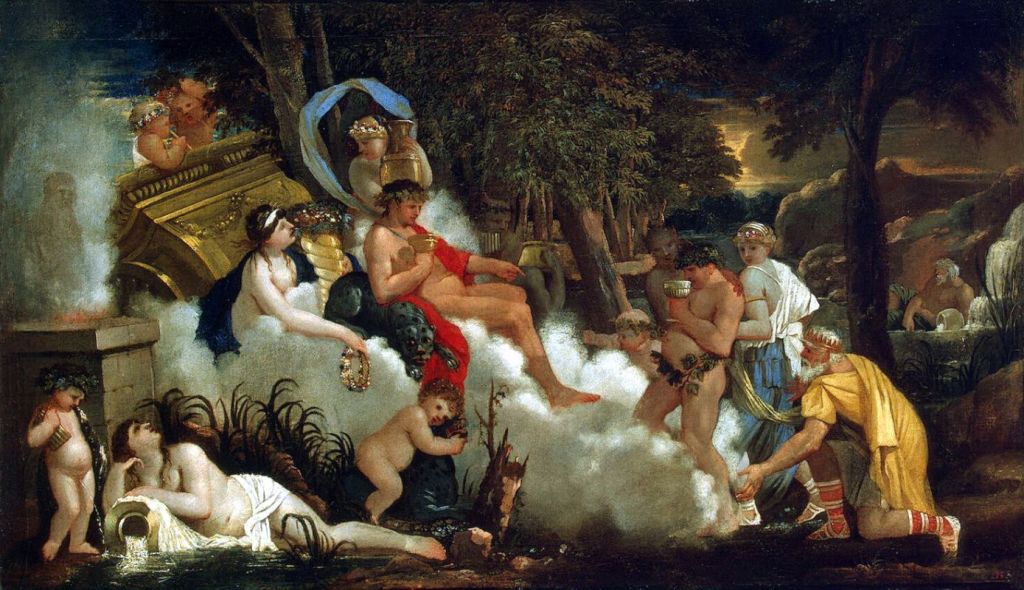
Firstly, Epicurus shifted the focus: instead of aiming to achieve pleasures, he proposed the ultimate goal of the absence of suffering. This move can be called revolutionary as it shows that when you desire, you can either strive to achieve what you want with all your might or try to weaken the desire. Here, an analogy with Buddhism is appropriate in understanding that to desire also means to suffer from lack.
Epicurus categorizes pleasures into three types based on their naturalness and necessity:
Natural and necessary (satisfying hunger and thirst, and the need for sleep and shelter).
Natural but not necessary (excesses in food and, likely, sex).
Neither natural nor necessary (possessing high social status, luxury items, and anything that flatters the ego).
At first glance, it seems that Epicurus advocates for moderation, but this is not entirely accurate. He suggests viewing pleasure not just as something immediate and specific but as a kind of capital of life well-being, which needs to be accumulated and can potentially bring more satisfaction over a longer period. A peaceful life without poverty and suffering is the good, especially if it is long-term.
Epicurus' philosophy can be supplemented with a fourth type of pleasure: unnatural but necessary. These include wisdom, integrity, the absence of fear, and prudence, which, according to the philosopher, are essential for a happy life. In the long run, this helps to achieve natural and necessary pleasures. In other words, one should take care today that improper diet does not lead to a stomach ache tomorrow and that a bad temper does not result in a dagger in the back.
An Epicurean should strive for ataraxia—a state of tranquility free from suffering and fear. A person should acquire the right knowledge about the world's structure to be a good person and enjoy ascetic pleasures.
These are good life tips. However, is there confusion or intentional deceit in equating pleasure and enjoyment with well-being and tranquility? Epicurus acknowledges that people want pleasures, but unlike the Cyrenaics, he has a more realistic view of the world. He understands that for most people, minimizing suffering rather than maximizing pleasure will be more beneficial, which forms the core of his ethics.
Such a mirrored reflection of the positions of the hedonists of Cyrenaics, for certain people, due to their position in society, character, and attitude towards life, can bring more pleasures. Epicurus also incorporates a motive for reducing everything to pleasure and explaining specific non-hedonistic moments and motives as tactical actions to increase future enjoyment.
In world culture, Epicureans are known for the fact that Dante placed both the founder of the doctrine and his followers in the sixth circle of hell, intended for false teachers, which distinctly highlights their separation from the general notion of hedonists, for whom other circles are intended.
Speaking of popular culture, one could consider The Dude from "The Big Lebowski" as an Epicurean, though somewhat loosely, as he lacks systematicity. Epicurus would more likely favor the character types of Charlie Chaplin’s heroes – resilient guys maintaining dignity even in poverty.
Interestingly, the image of classic elves in fantasy (for example, in Tolkien) has a noticeable Epicurean motif. These are quite stylish characters, but this is expressed through skillful minimalism, meaning through some moderation and self-restraint. They are also wise but still have a tendency toward passions, and there is often a motif that elves, in particular, cannot resist certain "high" pleasures.
Terry Pratchett's deconstructive satire in the novel "Lords and Ladies" is indicative. In it, elves literally wear rags and tatters, but everyone still finds them beautiful because this is an inherent rule of the image itself. Likewise, Epicureanism is more of an internal rule, which is sometimes not so easy to discern in external manifestations and actions.
Various historical figures, from Julius Caesar to Jeremy Bentham, leaned towards Epicurean views. It is believed that Epicurean influence even penetrated the Declaration of Independence of the USA, whose principal author was Jefferson. However, it's not that straightforward.
Epicureanism always remains a shaky middle ground between hedonism and eudaimonism. Jefferson, being a lover of ancient philosophy, was more of a Protestant in spirit rather than an ascetic gourmand. Therefore, despite the fact that he sometimes called himself an Epicurean, in the declaration we find a line about the right to happiness (and not natural and necessary pleasure).
Another example is the legendary Seven Sages of the Bamboo Grove. Their canonical description is essentially an example of Epicureanism: they withdrew from palace intrigues to drink wine in the bosom of nature and freely discuss whatever they wanted. However, malicious (Confucian) tongues described them as hedonists, claiming they drank excessively and frolicked like children, losing all dignity and decency.
To summarize, the maxim of Epicureanism can be expressed as follows: a person wants to avoid suffering, and pleasures can be varied, including subjective ones that are not inherently good; instead of indulging in momentary pleasures, one should invest in what will bring long-term pleasure in the future.
Eudaimonism: not pleasure, but happiness
Parallel to hedonism, eudaimonism developed – a similar and overlapping trend, to the point that Epicurus is associated with both directions, as are some subsequent thinkers. Eudaimonism differs from hedonism in that it considers the goal of human life to be the attainment of happiness, not pleasure.
In the future, it will become even more evident that much in the hedonistic discourse depends on whether certain concepts are used as synonyms or to distinguish phenomena. For hedonists in general, happiness and pleasure are identical. Despite all their differences, in this view, Aristippus and Epicurus are similar.
A good example of eudaimonism is Aristotle. He differentiated between the concepts of happiness and pleasure largely from the premise that the attainment of happiness is accompanied by displeasure. It is more about the achievement itself, which implies a path slightly more complex than a trip to the store for wine. Looking ahead, the same goes for the concept of utility, which in utilitarianism is distinct from both happiness and pleasure. It is worth noting that this is the essential feature of hedonism. Typically, for hedonism, good, utility, and happiness are all one, as they are reduced to or expressed through pleasure, preferably only physical.
The Greek εὐδαιμονία (eudaimonia) is a word that should be translated not only as "happiness" but also as "bliss." This is not just an attempt to emphasize some general characteristic of the state, independent of the details of life experiences. Aristotle chooses this word as a philosophical guideline because it refers to the highest divine level. "We always choose eudaimonia for its own sake and never for something else," he says, thus trying to eliminate the irresolvable duality of pleasure-suffering (whether one flees from one to the other, or vice versa).
In a very twisted way, in the modern world, eudaimonists are fans of positive thinking and not thinking about bad things. Today, the pursuit of happiness and thinking about happiness mostly boils down to a purely mechanical ignoring of unhappiness. As Edith Hall noted, true eudaimonism resembles stoicism with a positive outlook on the world.
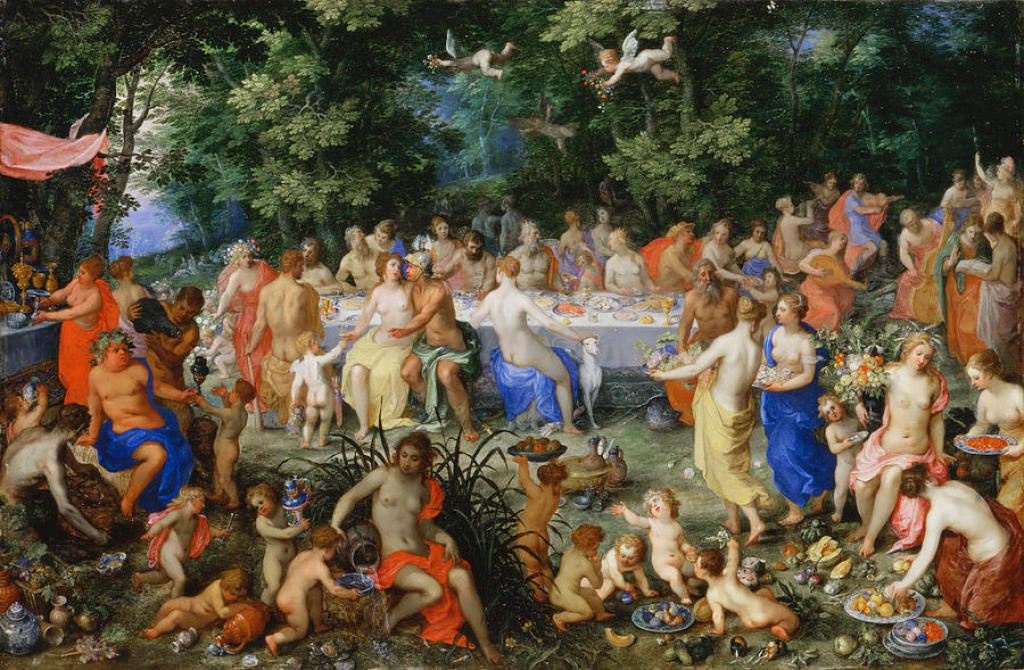
Undoubtedly, almost all ethical thinkers after Aristotle speak about happiness, but in the overall view of the world and oneself, perhaps the closest to the image of a eudaimonist is Gottfried Wilhelm Leibniz (incidentally, also one of the forerunners of positive thinking – in the form of the principle of pre-established harmony).
In the 20th century, a whole array of English-speaking ethicists attempted to return to Aristotle's view of happiness and virtue. One of the first was Elizabeth Anscombe, who noted that a person crushed by universal demands of duty cannot be happy (and therefore more attention should be paid not to duty, but to qualities that lead to right actions and self-satisfaction).
To summarize, the maxim of eudaimonism might sound as follows: a person wants happiness, which is a good not identical to pleasure, which in turn is something like a side effect of happiness. The problem remains, however, that pleasure is real, while happiness is merely a thought, an evaluative concept that can be manipulated.
Conclusion
As you might have noticed, from the very beginning of reflections on pleasure, views on it have differed, and we have yet to find a version of hedonism that precisely matches the common perception of what it is (Aristippus fell short with the element of conformity).
There are at least two reasons for this. First, the concept of "hedonism" functions as a generalization and stems from a reduction to a common denominator, which, as we have understood, cannot help but be contradictory. Second, our understanding is more aligned with later directions within the discourse on pleasures.
In the continuation of this series, we will explore how Christianity is related to the discourse of pleasure, and who inadvertently changed the overall direction of the entire movement. But first – in the next material – we will take a closer look at how Aristotle understood eudaimonism.
Made with
Caseme.io
